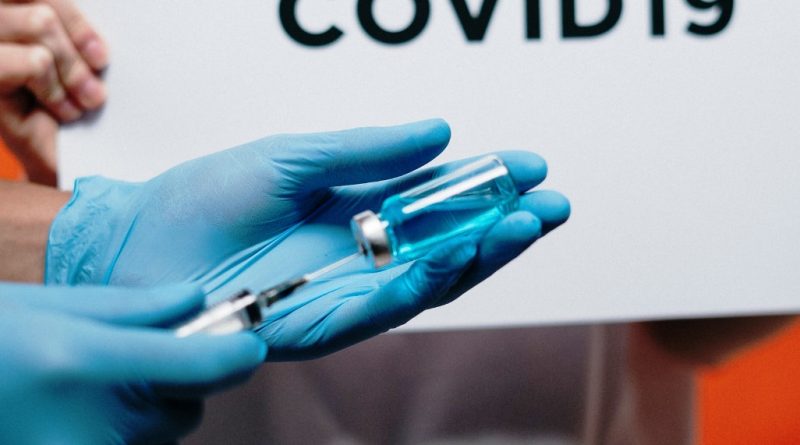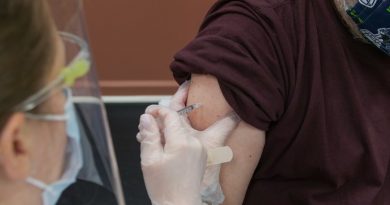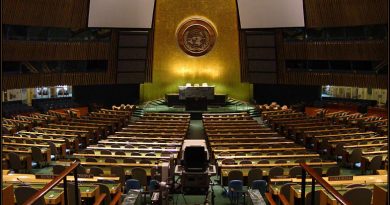The United States’ Next Mistake
Anita Baloukjy
Staff Writer
172 nations are now engaged in discussions to participate in COVAX, a global initiative aimed at working with vaccine manufacturers to provide countries with equitable access to safe and effective COVID-19 vaccines, the World Health Organization reports. COVAX is co-led by the Coalition for Epidemic Preparedness Innovations (CEPI), Gavi, the Vaccine Alliance, and the World Health Organization (WHO), who is working with vaccine manufacturers across the world. COVAX’s goal is to acquire and deliver two billion doses of approved vaccines by the end of 2021.
So far, it has nine COVID-19 vaccine candidates in its portfolio that employ a variety of different technologies and scientific approaches. An additional nine candidates are also being evaluated. Interested countries will confirm their intentions to join and make a binding commitment by September 18, and will subsequently make payments in early October using an allocation framework developed by the WHO. With the creation of the COVAX Advance Market Commitment, 92 low and middle-income countries will have support from 80 higher-income countries. Proponents believe that a huge positive of this design is that it would theoretically lead to lower costs for vaccines, which would in turn end this pandemic quicker.
The United States has refused to join this global effort. “The United States will continue to engage our international partners to ensure we defeat this virus, but we will not be constrained by multilateral organizations influenced by the corrupt World Health Organization and China,” says Judd Deere, a spokesman for the White House. This ‘go it alone’ strategy is certainly a gamble – it is like deciding to not take out an insurance policy. This has the potential to put thousands of lives at risk and isolate Americans from a safe vaccine.
According to The Washington Post, given the complexity of supply chains, vaccine development will essentially be a global effort, regardless of whether countries want to cooperate. It’s important to note also that the U.S. has withdrawn from the WHO despite being a major supporter of GAVI. This adds to the confusion and contradiction seen in the U.S. response to the pandemic.
The whole idea behind COVAX is to discourage countries from hoarding and instead vaccinate high-risk people in every country. In a recent Harris Poll, 66 percent of Americans agreed that, if the United States develops a vaccine, all domestic orders should be filled before any of the vaccines are made available abroad, The Washington Post reports. Having a nationalistic point of view will without a doubt prolong this pandemic. Science should dictate when a vaccine is ready—not politics.
According to National Public Radio, WHO Director-General Tedros Adhanom Ghebreyesus sent a letter to its 194 member states, urging participation. “Sharing finite supplies strategically and globally is actually in each country’s national interest,” he says. Most can clearly remember the early days of the novel coronavirus when panic ensued as shortages in personal protective equipment were seen. Globalization means that “a vaccine developed in one country may need to be filled in vials with stoppers that are produced in another, using materials for the high-grade glass that is only available from yet another country.”
Harvard Business Review refers to this behavior and its serious effects by alluding to the H1N1 virus outbreak in 2009. In that instance, high-income countries directly negotiated large advance orders for the vaccine, crowding out low-income countries. Even though many of those high-income countries (which includes the U.S.) agreed to make donations and distribute, they only did this after ensuring cover for their own populations first. As a result, the distribution of the H1N1 vaccine was based on high-income countries’ purchasing power, rather than the risk of transmission.
Ultimately, one thing must be remembered: no one is safe until everyone is safe. Vaccine nationalism jeopardizes each country’s chances of overcoming COVID-19. An article by The Washington Post brings up a great point: Even if countries act selfishly and hoard supplies, they will continue to struggle with new outbreaks so long as the virus continues in other countries because of the high transmission rate.
Suerie Moon, co-director of the Global Health Center at the Graduate Institute of International and Development Studies in Geneva, says “the behavior of countries when it comes to vaccines in this pandemic will have political repercussions beyond public health. It’s about: Are you a reliable partner, or, at the end of the day, are you going to keep all your toys for yourself?”
The views expressed in opinion articles are those of the authors and do not necessarily reflect the values of The Diplomatic Envoy.



